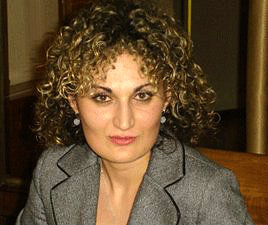
Ketevan Tsikhelashvili is Deputy Minister of Reintegration.
TBILISI, DFWatch–The talks between the parties in the 2008 Georgia-Russia war will meet in Geneva for another round of talks on March 25-26.
It is known that the OSCE heads of the meeting this time will be from Switzerland. The last round of Geneva talks was held this week and was headed by Ukraine. During the meeting, the parties discussed several important issues, like security and humanitarian needs.
DF Watch spoke with Ketevan Tsikhelashvili, Deputy Minister of Reintegration, who participates in the Geneva talks.
K.T: Our work was conducted in two groups just like in previous sessions. As you know, these are groups working on security and humanitarian issues and they work in a parallel regime. I work on humanitarian issues, but I think I can say that work in both groups was done in a productive environment, and we saw in these groups that we have a constructive approach to the issues.
This means that we are ready for pragmatic decisions. Talks about statuses, and other issues brought up by the Russian party or representatives of the conflict regions, cannot bring anything. We won’t be able to achieve anything by talking about such issues in the framework of the Geneva talks or any other type of negotiations. However, there are issues which we can solve, especially in the humanitarian group, and I always bring up such issues.
DFW: Specifically what type of issues are you talking about?
K.T: Issues regarding humanitarian necessities, and these issues cannot be politicized, on the contrary, we must find approaches in order to solve the everyday problems of people.
Of course, the central topic was barbed wires and fences, also ditches which they started to dig at the conflict line with Abkhazia by which they try to block passages. There is 30-40 km of barbed wires, while there are 7 km length ditches at Abkhazia. All these actions contradict every kind of agreement and is far from legal actions, and in addition, there are human issues with these actions. So we separated those issues, which are problems for the locals in these regions. As far as you know, these barbed wires concern about a hundred families directly.
One thing is to identify problem and the other thing is that we propose way out of them. For example in some villages there is a problem for people to go to the cemetery and we raised this issue that they should give an opportunity to local villagers to visit the graves of their relatives. The other problem is that they installed these fences and wires in the middle of agricultural lands of locals, while the only source of income for these families is harvest from these lands. So we also raised the issue that these people should be able to use their own agricultural lands.
In the case of both Abkhazia and Tskhinvali we underlined that people who need medical treatment shouldn’t have any problems. Even though it seemed that there were no such problems regarding Abkhazia in the last period, Russian soldiers still do not give locals an opportunity there for treatment. That’s why we raised the next issue that there should be no additional questions in this area and this issue should be solved without additional problems. We called on the chairs of the Geneva talks to prepare certain mechanisms to solve this issue without any problems.
We also sharply raised the issue of access to education. As you know, there are schools on both sides of the so-called border with Abkhazia and children aren’t given the opportunity to go freely to schools. This is a violation of basic human rights and we asked to solve this problem too.
DFW: Apart from violation of rights to education, there are violations of other basic human rights in this region. What can the reaction be to this?
K.T: We also raised the issue that the rights of citizens in Gali [a region in Abkhazia with predominantly Georgian population, ed.] are violated. I mean that they recently adopted a law according to which a person having an Abkhazian name is much more easily given documents. This way they force people to change their names. This is directly contradicting human rights and we demand to solve this issue. These are common steps which indicate that there is ethnic discrimination and this issue cannot be left without attention. We told them we don’t want to name all this ethnic discrimination, but everyone sees it perfectly. Of course, documents which they are giving away are absolutely illegitimate, but still this cannot be left without reaction.
So we were very active about the issue of freedom of movement and we requested to prepare a specific mechanism. In addition, we also spoke about lost people, which was raised by Russian party and we are cooperating about this issue.
DFW: Is it about people who were lost during the war in August, 2008?
K.T: Yes, it is about this, and we told them that we are cooperating about it. There is one person lost from our side. A criminal case is launched, so there is no problem.
We once again told them that the issue of supplying Akhalgori with natural gas and water is still in force. Winter is coming, and they must ask those people whether they want to get the problem of heating solved. In addition, we are ready to supply villages left beyond the occupation line with water due to their necessity. So we are constructive, but the background is pretty difficult, because they try to politicize certain issues and they avoid discussing specific humanitarian issues, but we must say that we have great support from the heads of talks and we expressed hope that we will have specific ways to solve all these issues for the next round.
DFW: Did you discuss issue of refugees returning to their homes?
K.T: Of course, the topic of refugees is a central issue and we speak about it at every round. Often they avoid discussion about it and now we told them that this must end and that this issue must be specifically discussed at the next round. We are ready to start on certain things about this issue so people can return to their homes.
DFW: What kind of position do the Russians have in these talks?
K.T: Russians make attempts to stand aside as if they aren’t participants in these processes. But when I described the situation, I said that Russian soldiers are not letting children go to school. I said exactly what is happening there and Russians are doing it. I didn’t make a political accession and I didn’t say that occupants are not letting children, etc, which I really could do if I wanted to politicize the issue, but they didn’t react to it. They told me – Why do you say Russian soldiers? – I told them that they are Russians and they are soldiers and I couldn’t call it anything else. I said I could call them occupants if they wished so.
Their position is like they have nothing to do with all of this, but in the end everything must have a name and we addressed the chairs of the talks and asked to react to this. The Geneva talks is a format of Georgia-Russia talks and it was set up on the grounds of the six-point agreement for Georgia-Russia negotiations. Yes, there are representatives from Abkhazia and Tskhinvali, but the goal was Georgia-Russia negotiations.
In fact, participants are those who are involved in these issues. They do make summing statements at the end of negotiations, but during negotiations they attempt to step aside. During these rounds, we several times asked them directly if they could deny that refugees have rights. They cannot deny it. They also cannot deny that there are humanitarian needs. For example, Ossetians talk as if they do not have humanitarian needs – that there is winter but nobody’s cold. Russians cannot say so.
DFW: Does this mean that people in Akhalgori are against being supplied with gas?
K.T: Yes, they do not want it; however a year ago they reproached us that we were against supplying Akhalgori with gas. As soon as we agreed on this, they started being against it. At the very first round held after the change of government in Georgia, we said we agreed to supply Akhalgori with gas. Now it is already the fifth round that I personally raise this issue, but they do not want it, even though the locals in Akhalgori do not have an alternative way of heating. They claim that these people aren’t cold and they do not want gas. We told them to go and ask these people what they want; whether they are cold or not and then make a proper decision. Winter is winter.
OSCE also calls on them to agree to this proposal, considering the humanitarian needs, and this issue cannot be politicized. I hope they will acknowledge this and make a decision afterwards. We are ready to solve the problems of these people and no one can blame us.

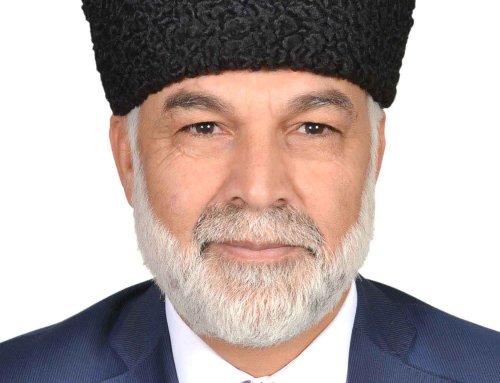
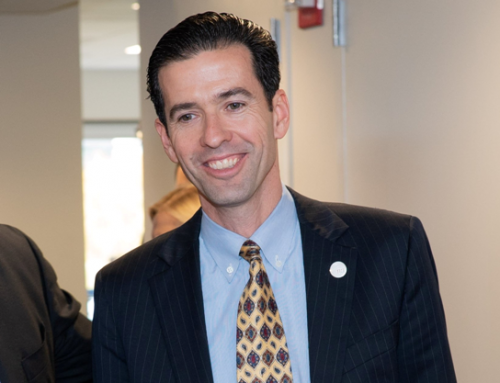
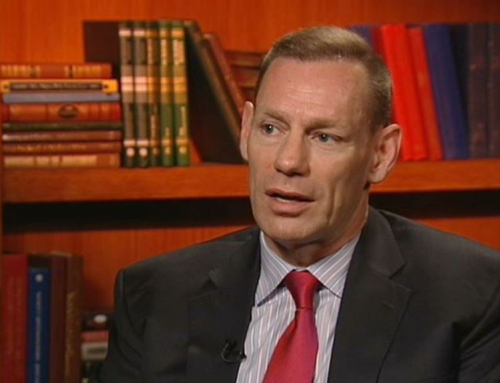
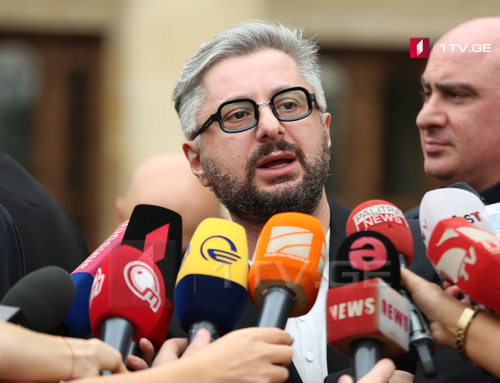
Leave A Comment
You must be logged in to post a comment.